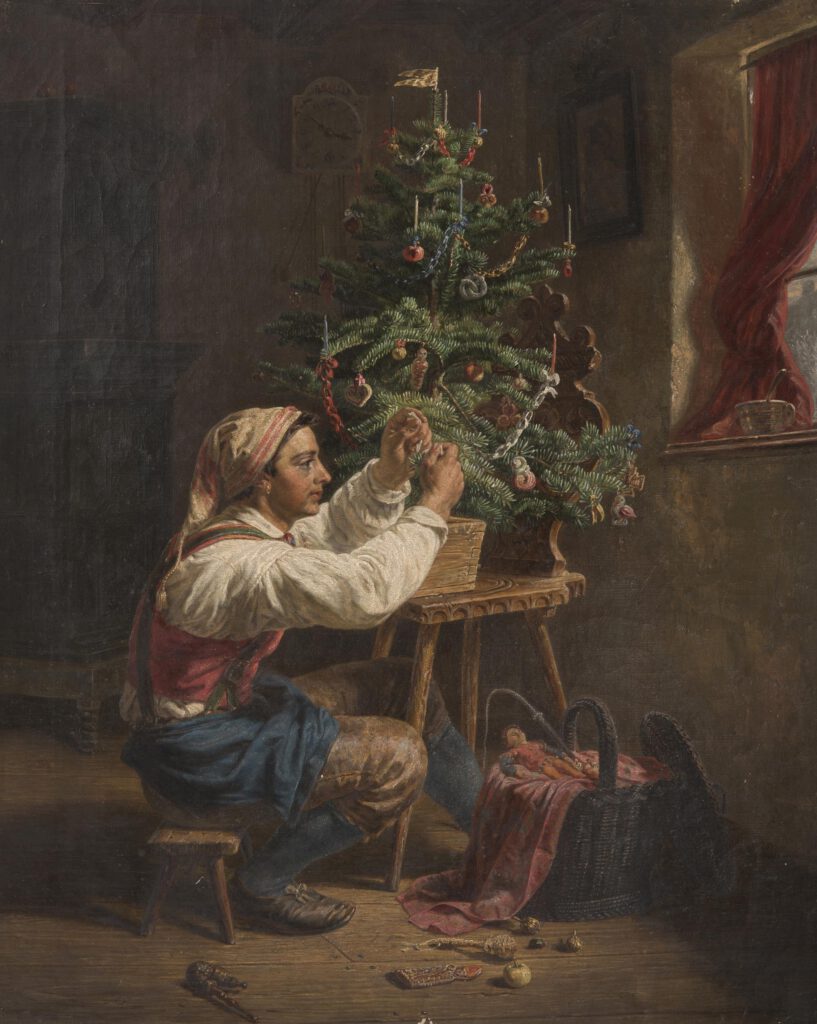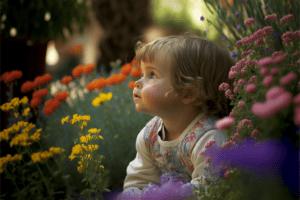Loneliness: Being alone is not loneliness
- Loneliness: Being alone is not loneliness
- Loneliness: Being alone has advantages
- 1. You can do what you want
- 2. Being alone makes us aware of who we are
- 3. Make plans
- 4. Strengthen self-confidence
- 5. The eye for everyday things is sharpened and stimulated
- 6. Allow thoughts and face demons
- Loneliness: But what distinguishes being alone from loneliness?
- Loneliness: The truth about the holiday loneliness epidemic
- Loneliness: Tips for coping with loneliness at the holidays
- 1. Check expectations
- 2. Give something back to others
- 3. Take care of yourself
- 4. Remember that you are not alone
- 5. Be grateful
- Loneliness: Holiday loneliness need not be
For many people, the Christmas and New Year holidays are a time of celebration with the family. Christmas parties at work, baking biscuits during Advent, giving presents on Christmas Eve, family meals on Christmas Day, New Year’s Eve and numerous religious celebrations fill hearts with joy. However, when all friends celebrate in their families, the Christmas holidays are lonely for people without family, with short days and long nights. The limited opening hours of restaurants and the concerts scheduled at an early hour only make the loneliness all the more painful: everyone is rushing to get home and to their loved ones.
Despite our innate need for contact, being alone at times is a normal and at times even necessary human experience – being for oneself. “Silence does not ask questions, but it can give us an answer to everything,” says Ernst Ferstl. Those who can be well alone with themselves are never really lonely.
Loneliness: Being alone has advantages
1. You can do what you want
No hectic party preparations – you can do what you want, just like that. Listen to old records or read in peace, cook, bathe or, if need be, rearrange the flat. It’s worth learning to be alone. It helps you gain essential insights: What needs do I have? What do I want? What do I enjoy? We can draw strength from being alone, even if we are often unaware.
2. Being alone makes us aware of who we are
The fact that one likes to be alone, does not mean that one is unsociable or grumpy. Someone who can spend time with himself or herself also knows better who he or she actually is. And that can only be a great advantage in the company of others.
3. Make plans
Without distractions, you can rethink your plans and reflect on the past. In everyday life, we are often constantly talking and forced to interact. Reflection comes too short, but this is what allows us to grow and develop.
4. Strengthen self-confidence
In a group, we like to rely on others. When alone, we must find our way around and get things done. Facing new situations and mastering them strengthens our self-confidence. It doesn’t matter whether it is finding your way around a strange place or fixing your bike.
5. The eye for everyday things is sharpened and stimulated
Being alone allows harmony with nature and our surroundings, simply because we can experience them with undivided attention. We take note of the architecture or see a new shop we want to visit. And we feel freer, more independent and more confident.
6. Allow thoughts and face demons
Those who avoid reflection can suppress problems that urgently need to be addressed. In solitude, thoughts can be put in order, and solutions can be discovered.
Loneliness: But what distinguishes being alone from loneliness?
The latter is often attributed to older people who are single or estranged from their families. It also affects people who sacrifice social contact to their work all year round or survivors of childhood trauma, for whom complex post-traumatic stress disorder (cPTSD) with low self-esteem, mood swings, panic, outbursts of anger, mistrust and social anxiety makes it very difficult to form a sustainable attachment.
Loneliness, instead, is not simple. Social psychology calls loneliness an individual condition characterized by the absence of interpersonal contact, a relationship deficit that can occur in multiple domains (romantic-sexual, friendship, family, neighbourhood). It can be short-lived or persistent.
It has three characteristics: firstly, thoughts and feelings of separation from others and so the idea of one’s inferiority and weakness; secondly, negative feelings such as anger and sadness; and thirdly, isolation – actions such as avoiding social contact, which leads to loneliness.
The main reasons for this loneliness are the absence of loved ones and grief. Another possible cause of feelings of loneliness is Seasonal Affective Disorder (SAD). This is a form of depression that is usually associated with the change of seasons, but is particularly severe in autumn and winter. Subjectively experienced loneliness is often accompanied by depression, which may require psychotherapy. However, depression does not necessarily have to be related to loneliness: for example, the loss of a caregiver can trigger both loneliness and depression, and the loss of one’s job will cause depression but does not necessarily lead to loneliness. Social-structural conditions promote loneliness. These include, in particular, the anonymity of living in large cities.
Loneliness becomes particularly agonizing when unrealistic expectations of the holidays are reinforced by posts on social media in which everyone incessantly has boundless fun. No one has trouble with the immaculately arranged festivities; nothing ever fails, no children whine – there are no family quarrels on social media either. And those who are excluded from this bliss must feel inferior.
Loneliness: The truth about the holiday loneliness epidemic
It seems that loneliness on holidays exists all year round and that habitual coping strategy is no longer sufficient when advertising, the media and the entire environment suddenly conjure up family, togetherness and connectedness. After all, similar feelings can arise at any time of year, such as the holiday blues. Loneliness affects people regardless of race, gender, sexual orientation, religion or nationality. According to a recent survey, 55% of Americans suffer from the holiday blues, with Generation Z (75%) and single adults (65%) feeling lonelier than others in the study group.
However, over 25% of Generation Z say their loneliness is due to social media. Furthermore, members of the LGBTQIA+ community face the highest rates of loneliness, among whom 76% reported feeling lonely around the holidays due to poor family relationships.
All these frightening statistics prove that more people struggle with seasonal loneliness than we think. But there are things you can do to make this time of year a little kinder for everyone.
Loneliness: Tips for coping with loneliness at the holidays
Some of those affected fall into unhealthy coping mechanisms during the holidays, such as alcohol or drug abuse. But the fact that loneliness during the holiday season has so many potential causes is good news. It means that there are a variety of solutions and strategies to manage negative feelings during the holidays and beyond.
1. Check expectations
Social media foster many disorders, from eating disorders to depression. They present unrealistic images of what our lives should look like: blissful consumption. However, this is not the case for millions of people. What will make you happy this Christmas season? Focus on what you have in your life and dare to accept that it does not match what you see on the internet. If the posts and ads on social media annoy or depress you, consider taking some time out.
2. Give something back to others
If you want to fill your holidays with joy, you can volunteer to help those less fortunate than you. This can be a gratifying experience that makes us feel part of a community while allowing us to become aware of what fills us with gratitude.
3. Take care of yourself
Instead of adopting preconceived expectations, do what makes you feel good. Read a book, watch your favourite film, or cook a dish you enjoy. It’s okay if you don’t love the holidays or don’t feel your happiest at this time of year. Allow yourself to be who you are. What can you do that allows you to appreciate the life you are living?
4. Remember that you are not alone
Hardly anyone talks about loneliness lest they be judged, shamed or ridiculed. The truth is that many people experience loneliness during the holidays. It is time to normalize this experience. Don’t be afraid to talk to others about your feelings in person or online. Talking about loneliness during the holidays can help others realize they are not alone.
5. Be grateful
We all have things for which we are grateful, but we often forget them in the face of negative feelings. Gratitude is a virtue of memory, of remembering benefits or help we have received from others. Whoever is happy, whoever is joyful, is grateful. This attitude triggers further joy in the mind, radiating out into the environment and receiving it back from there. So, there is a close interaction between joy and gratitude. What things and people do you love? What have you achieved? What do you love in life?
Loneliness: Holiday loneliness need not be
The holidays have different meanings for many different people. If you feel unfulfilled, the turn of the year can mean depression and withdrawal. But perhaps the most important insight here is to remember that you are not alone in your loneliness.
If you know someone with no family or friends, invite them to your Christmas dinner or a coffee party. We rarely know what is going on in another person’s life, but a benevolent conversation or a kind gesture can make a difference.
Sources:
Bierhoff, H.-W., & Herner, M. (Hrsg.): Begriffswörterbuch Sozialpsychologie.
http://www.buddhareden.com/fileadmin/user_upload/Dankbarkeit.pdf
https://www.esquire.de/news/gesellschaft/psychologie-achtsamkeit-vorteile-des-alleinseins






